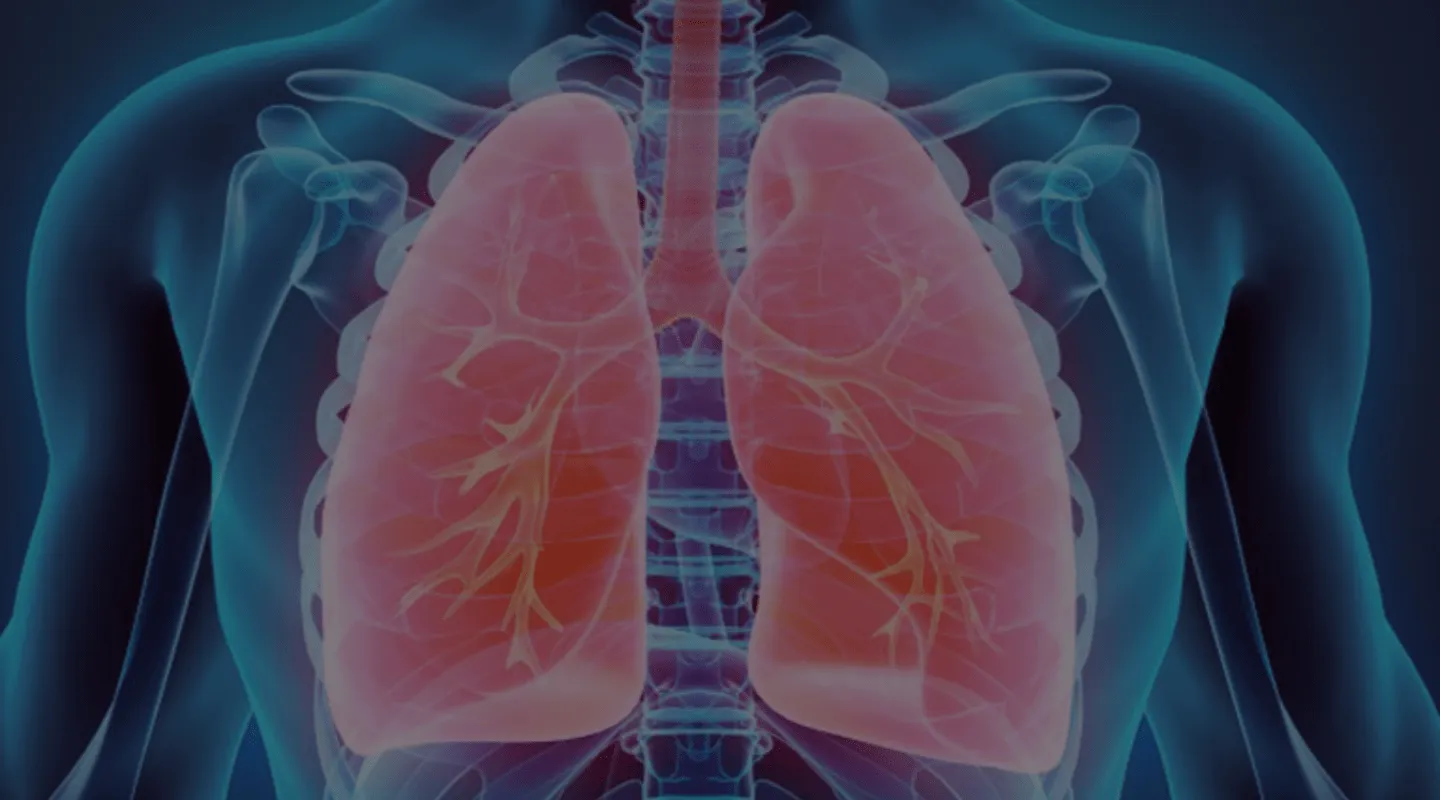
Pneumonectomy
Your Pneumonectomy in Tunisia at an Affordable Price
Opt for a medical stay with Tunisia Destination Santé and benefit from the expertise of our specialist doctors and the best healthcare facilities in Tunisia. Thanks to our tailor-made service, you will benefit from complete support in a secure and comfortable setting.
How does it work?
Pneumonectomy in Tunisia
Pneumonectomy is a surgical procedure performed in Tunisia to completely remove a lung from a patient with bronchial cancer. When conventional treatments prove ineffective or a simple resection is insufficient to treat the disease, this remains the best option. A highly qualified thoracic surgeon performs this operation in an ultramodern medical environment. Here is essential information to know about this procedure, including its indications, course, and aftermath.
What is Pneumonectomy in Tunisia?
Pneumonectomy is a major procedure involving the complete removal of one of the two lungs. It is generally recommended for patients with lung cancer, but may be considered as a last resort for those suffering from a severe infectious disease affecting the lung. When a less extensive operation such as a lobectomy, which consists of removing a single lung lobe, is not sufficient to eliminate tumors, total lung removal will then be necessary. This requires careful consideration and should only be considered as a last resort. Using lobectomy, patients can lead relatively normal lives, unless they suffer from cardiac or respiratory problems. However, the risk of losing some respiratory function is 15 to 20%. Lung resection is reserved for patients whose cancer is limited to the thorax, so it is not recommended for those with metastases or spread of the disease to other parts of the body.
Pneumonectomy in Tunisia: What You Need to Know Before the Operation
Before proceeding with the operation, it is essential to conduct a complete assessment to determine the extent of the cancer. This will determine whether the cancer is localized in the thorax or has spread to other organs of the body. It is important to note that the operation is not suitable for all situations and cannot be performed if you suffer, for example, from heart failure or high blood pressure. In this case, it is imperative to conduct a cardiac assessment before any surgical intervention. To ensure that the patient is fit to undergo the operation, a complete respiratory assessment, including a lung scan, will be performed to assess their lung capacity. In addition to the necessary examinations, the surgeon will provide you with a list of preparations and recommendations to follow before the intervention. If you are a smoker, it is essential to quit smoking several weeks before the scheduled date of the operation. When you meet your surgeon for the first time, he or she will take the time to explain the steps to follow after the pneumonectomy, as well as the potential risks and consequences this intervention will have on your daily life. Indeed, pneumonectomy is a major operation and should be taken seriously.
What is the price of a pneumonectomy in Tunisia?
For an affordable and quality pneumonectomy, choose Tunisia as your medical destination. Our expert doctors offer remarkable expertise. Contact Tunisia Destination Santé to get a quote today.
Your health, our priority.
Request your free quote.
How is a pneumonectomy performed in Tunisia?
A general anesthetic is administered before the start of the operation, which typically lasts two hours. During this operation, the thoracic surgeon will perform a thoracotomy: an opening of a few centimeters in the rib cage, allowing direct access to the lung (by separating two ribs). Depending on the patient’s condition, the surgeon may recommend radiotherapy or chemotherapy in addition to the pneumonectomy to minimize the risk of recurrence. Generally, the hospitalization period varies between one week and ten days, if all goes well and there are no complications.
What are the sequelae of a pneumonectomy in Tunisia?
During your hospital stay, an experienced medical team will take care of you constantly. They will monitor your recovery and monitor your overall health after your operation. You may experience some pain after the procedure, such as pain related to the thoracotomy or rib spreading. However, rest assured that we will provide you with appropriate treatment to relieve this painful sensation. You are likely to experience pain for several weeks after your operation, so you will need to take the painkillers prescribed by your surgeon. To ensure a good recovery, regular follow-up sessions will be necessary in the months and years following your discharge from the hospital. These will assess your respiratory capacity and monitor any risk of cancer recurrence.
What are the possible complications of a pneumonectomy?
As with any surgical operation, pneumonectomy carries potential risks. These risks may be related to the procedure itself, such as anesthetic or scarring complications, or to the post-operative recovery phase. After the intervention, the patient may also be exposed to complications such as cardiac problems (heart rhythm disorders) or pulmonary problems (such as pneumopathies). Follow-up sessions are used to monitor the patient’s condition and to effectively prevent or treat any potential complications related to the operation.
What are the effects of the operation on respiratory capacity?
When you are operated on, if your respiratory capacity was normal, you should normally not see your daily life affected by the pneumonectomy. Of course, your respiratory capacity will be halved, since you will only have one lung left after the operation. However, some patients are fortunate enough not to notice such a marked difference in breathing. Obviously, you won’t be able to make the same physical efforts as before, but you should in theory be able to live your daily life without major worries.
Our advantages


Contact and request a quote for pneumonectomy
If you are considering having a pneumonectomy, do not hesitate to contact Tunisia Destination Santé. We are here to help and support you in all the steps. Do not hesitate to contact us for more information and to request a free quote, without any obligation on your part. Our team remains at your disposal.
—
Frequently Asked Questions
After a pneumonectomy, the remaining lung may undergo compensatory hypertrophy and an increase in functional capacity. However, it is essential to monitor respiratory function regularly, as long-term complications such as pulmonary hypertension may occur.
Moderate physical activity is possible after a pneumonectomy, but consulting a pulmonologist and following a tailored respiratory rehabilitation program is crucial. Strenuous activities may be limited depending on individual recovery and remaining lung capacity.
Quality of life can be affected by pneumonectomy due to reduced lung capacity and possible post-operative pain. Regular medical follow-up, respiratory rehabilitation, and pain management strategies are essential for improving and maintaining quality of life.
Alternatives may include lobectomy (removal of a lung lobe), segmental resection (removal of part of a lobe), radiotherapy, chemotherapy, and targeted therapies. The decision depends on the stage and location of the cancer.
Risks of post-operative infections include pneumonia, surgical wound infections, and nosocomial infections. Antibiotic prophylaxis, rigorous wound care, and post-operative monitoring are crucial to minimize these risks.
Yes, pneumonectomy can affect the cardiovascular system, particularly by increasing the risk of pulmonary hypertension and altering cardiac dynamics due to the loss of lung mass. Cardiologic follow-up may be necessary.
Pneumonectomy can affect the respiratory capacity needed for speaking and singing, especially for activities requiring high lung capacity. Voice therapy and breathing exercises can help improve these abilities after surgery.
Pulmonary rehabilitation plays a crucial role in recovery after a pneumonectomy. It helps improve respiratory capacity, strengthen respiratory muscles, and manage symptoms such as shortness of breath.
Psychological effects may include anxiety, depression, and post-traumatic stress due to the impact of surgery on health and quality of life. Psychological support and support groups can be beneficial.
The ability to work after a pneumonectomy depends on the nature of the work and individual recovery. Jobs requiring strenuous physical exertion may be more difficult to resume. A medical assessment and job accommodations may be necessary to facilitate a return to work.
